Members of a group called the Cuban Constitutional Government of the Transition hope to secure U.S. government support in their effort to bring about democracy in Cuba.
“We are not asking for U.S. military intervention. We are asking for support, recognition. We would not want bloodshed,” said Rubén Ricardo, a leader of the group.
Ricardo and other members of the group are developing a transitional government that they say would take charge after Cuba’s socialist government is no longer in power. Their transitional government has installed an array of executive officers and ministers, including president and ministers of commerce, public works, defense, justice, communications, agriculture, labor, a supreme court justice and others. Ricardo said:
Communists always project that socialism is for the proletariat, for the worker, for the poor people. All this is known to be a fallacy, that this is a lie and that is not the case. They do not represent the Cuban people, they represent communism. And communism is the enemy of democratic systems.
I asked Ricardo for his opinion on the socialist government’s handling of the economy and the Covid pandemic.
“A total disaster,” he replied.
Ricardo, whose title is “minister of the presidency,” told me that the transitional government “is not just another exile organization.”
“It is not a political party, but rather a legal, legitimate government entity that emanates from our 1940 Democratic Constitution.”
Below are excerpts of my interview with him. A Spanish language version is first, followed by a Google-translated version in English. These are quick and imperfect transcripts designed to give you a feel for the interview – pardon me that they are accurate to the letter and word. If you’d like to listen to the interview, the YouTube video is also below.
Rubén Ricardo:
Entonces quiero enfatizar que el Gobierno constitucional no es una organización más del exilio, no es un partido político, sino es una entidad gubernamental legal, legítima, que emana de nuestra Constitución Democrática de 1940, que tiene un mecanismo de sucesión de la presidencia, como aquí en los Estados Unidos. Por ejemplo, cuando asesinaron al presidente Kennedy había una sucesión. El vicepresidente fue juramentado como presidente. Bueno, en Cuba e igual tenía un mecanismo de sucesión. Ahí estaba el presidente, vicepresidente, presidente del Congreso, que aquí también existe y entonces había otro sucesor en caso que esos dos sucesores no existieran por algún accidente o cualquier cosa. Sabía del Poder Judicial, de del del escalafón del Tribunal Supremo. El magistrado más antiguo que fuese nombrado sería el sucesor de la Presidencia, pero interinamente nada más que por dieciocho meses. Y entonces el convocaría elecciones en 90 días para celebrar en dieciocho meses. Entonces, basado en ese mecanismo, es que existe el gobierno de transición, porque el gobierno de transición fue hacia atrás hasta el último período constitucional que tuvo Cuba, que fue el del doctor Carlos Ríos o Carrasco. Que fue sacado del poder por la dictadura de Batista. Violando la Constitución, entonces Fidel Castro se aprovechó de ese mecanismo y de ese problema, mejor dicho, y le prometió al pueblo cubano restablecer el hilo constitucional con la revolución que la inventó, pero que nadie sabía que Fidel Castro estaba mintiendo.
Cuando él llegue al poder. No hizo lo que él había prometido al pueblo, que era restablecer el hilo constitucional, sino que. Vuelve a violar la Constitución por segunda vez y establece una dictadura comunista. Hasta hasta el día de hoy, pero la Constitución nuestra, aunque fue violada por Batista primero y Castro después, nunca fue abrogada por un Congreso electo por el pueblo. Por lo tanto, está vigente y tiene el artículo ciento cuarenta y nueve que establece esa sucesión que yo le expliqué antes. Y en eso está basado entonces en vino. En 24 de febrero del 95 se se proclamó y se juramento el primer presidente constitucional en el exilio, que fue el doctor José Morel Romero. Él fue proclamado en tapa en el Parque José Martí de Ybor City, en Tampa. Y el que. Era. Había sido el magistrado más antiguo antes de. Estando ya en la presidencia, dijo Voy a establecer el mecanismo de sucesión que me proclamó a mí para cuando yo muera. Ese mecanismo continuará. No sé lo que hizo, fue basado en el artículo 180 de la Constitución de 1940, estableció un nuevo escalafón de nuevos magistrados que él mismo lo nombró porque la Constitución le daba la facultad a él, como dice la propia Constitución, de poder nombrar nuevos magistrados. Y entonces así se estableció el nuevo, el nuevo escalafón del Tribunal Supremo.
Y desde entonces, desde desde 1995 al presente, hemos tenido cinco sucesores presidenciales constitucionales. Para restablecer la democracia en Cuba. Queremos una democracia ordenada. Donde no haya problemas, que no le causemos problemas a los Estados Unidos, que es nuestro, nuestro aliado y nuestro vecino más cercano. Queremos tener unas buenas relaciones, como siempre tuvimos con los Estados Unidos, porque los Estados Unidos siempre fue un buen vecino que el el intercambio comercial que tenía Cuba con Estados Unidos era formidable. Teníamos precios preferenciales de la industria azucarera, que era la principal de Cuba. Estados Unidos nos compraba el azúcar a un precio preferencial. Y nosotros no le vendí. O sea, y. Y Estados Unidos nos vendía a nosotros los electrodomésticos, los carros, todas las cosas para la cocina. Todo, todo, todo. Ese tipo de cosas lo comprábamos de Estados Unidos más que ningún otro país del mundo. Era un intercambio excelente. Entonces queremos volver, queremos primeramente sacar del poder a al régimen castro comunista con la ayuda de del pueblo, por supuesto, y con algunos militares que están descontentos con el régimen. Que han visto que ese cambio es necesario porque en realidad ellos también tienen familia. Los militares y ellos son parte del pueblo cubano. Queremos evitar también un éxodo masivo de cubanos a Estados Unidos, porque esa es una de las cosas que Estados Unidos teme.
Que si hay un cambio en Cuba, que se va a desestabilizar el área y que va a haber un éxodo masivo. El Gobierno constitucional va a evitar un éxodo masivo. Lo va a evitar por todos los medios. Porque una vez que esté en funciones, les va a ordenar al Ejército que va a estar de acuerdo con el cambio a la democracia. Que no permitan que nadie salga desordenadamente, como está pasando en la frontera en estos momentos. Desgraciadamente aquí entre México y Estados Unidos, eso, eso. El Gobierno constitucional se compromete a evitar que eso suceda. Lo que queremos es restablecer las relaciones diplomáticas y comerciales con los Estados Unidos de la misma manera que existieron siempre, porque fueron nuestros mejores vecinos. Cuba prosperó enormemente debido a ese intercambio que existía entre los dos países. O como parte de la historia. Quiero decirle que en el año 1958, que fue el último año antes de llegar al poder comunismo en Cuba, Cuba se colocó entre los tres primeros lugares en América Latina. Economía y educación. Y eso se debió al intercambio comercial con Estados Unidos. Fue una prosperidad económica tremenda y también que teníamos en vigor nuestra Constitución Democrática de 1940, que era una Constitución que ayudó mucho al progreso económico del país. Entonces. El gobierno de transición se establece. Con el único objetivo, como ya le expliqué antes de regresar al hilo constitucional que se perdió por las violaciones de Batista y de Fidel Castro a la Constitución de la República.
Y entonces existe una estructura de gobierno. Con los tres poderes tenemos en el Poder Judicial, tenemos abogados dentro de Cuba que se están preparando desde el punto de vista jurídico para asumir la responsabilidad del Poder Judicial. Y ya eso lo tenemos. Entonces el Congreso de la República, que fue disuelto por la tiranía Castro comunista en el año 59. Vamos a utilizar los municipios de Cuba. Como un Consejo Legislativo asesor que va a funcionar en los 18 meses de la transición equivalente al Congreso. Pero no van a poder legislar porque no fueron electos por el pueblo, pero sí pueden asesorar al presidente constitucional en lo que se refiere a la parte legislativa, porque van a representar a los municipios, todos los municipios de Cuba. En eso. Eso a grandes rasgos, eso es lo que es el Gobierno constitucional es un gobierno legítimo, sin ambiciones políticas de ninguna clase. Todos los que pertenecemos aquí somos profesionales, todos. Y lo que queremos una democracia para Cuba. Una libertad para el pueblo, una prosperidad económica para el pueblo cubano que ha sufrido mucho durante tantos años. No, que no hay ambiciones políticas, no hay ambiciones de ninguna otra índole. E Existen grupos.
Para su conocimiento físico existen grupos y organizaciones que desgraciadamente no quieren aceptar el gobierno constitucional porque tienen ambiciones políticas y el gobierno de transición constitucional no es un adversario político de nadie, porque nosotros no tenemos ambiciones políticas. Más la propia Constitución no le permite al presidente interino a ser candidato en las primeras elecciones, porque la Constitución no le permite. Entonces el gobierno entero en pleno, cuando se produzcan las elecciones, renuncia y le pasa las riendas del Gobierno al primer gobierno electo por el pueblo cubano. No hay ambiciones de nada en particular. No, no vamos a interferir con las ambiciones políticas de las organizaciones o de los partidos políticos que se conforme. Al contrario, la Constitución los va a proteger para que ese ese período se haga lo más normal posible dentro de dentro de la al amparo de la ley, como se hace aquí en los Estados Unidos, que hayan elecciones pluri partidista, que todo el mundo pueda correr para posiciones del Gobierno, no solamente nacional, sea como se llama aquí federal, gobiernos de las provincias y municipios, gobierno municipal. Todo va a estar en esas elecciones generales y de esa manera Cuba va a comenzar el período de una nueva república libre y soberana. Ese es el objetivo. A grandes rasgos. Así que si quiere tiene alguna pregunta de lo que le expliqué? Me lo puede preguntar?
Tracey Eaton: Ok, perfecto. Entonces, cuál es su visión en cuanto a qué pasos hay que tomar para sacar del poder el gobierno socialista?
Ricardo: Bueno, la visión que yo tengo, yo diría, por ejemplo, ahora que ha surgido. Los levantamientos en las calles de Cuba, de la juventud cubana. Es un levantamiento popular. Que eso va a convencer. A los grupos militares que ya están descontentos hace tiempo ya de la dictadura y que quieren un cambio, pero que no saben cómo hacerlo, pero cuando ellos ven ahora que poco a poco el pueblo retomando las calles, vamos a llamarle así poco a poco, pues ellos van a apoyar al pueblo. Y entonces eso va a ser la. La fórmula de sacar a esa gente del poder no sabemos que, por ejemplo, la cúpula de gobierno que compone el gobierno de la dictadura está compuesta por 300 personas aproximadamente, contando a Raúl Castro Díaz Canel, los generales y coroneles que están alrededor de 300. Esos 300 son los que tienen secuestrado a 12 millones de cubanos. Entonces es fácil para un grupo de militares. Poder desarticular a esa 300 personas y darle un y darle una alternativa, decir bueno. Te pueden ir a vivir en en cualquiera de los países comunistas que existen en el mundo o los vamos a sacar de alguna manera. Entiende eso? Esas son las dos alternativas yo pienso que ellos van a optar por irse porque muchos de ellos tienen cuentas en bancos extranjeros. Todo eso se sabe de que la cúpula tiene negocios y dineros en bancos extranjeros y si ellos son inteligentes se van a querer ir antes de que lo saquen de otra manera, no? Y entonces ahí es donde el gobierno de transición tomaría las riendas del país para una transición no permanente.
Eaton: Y usted mencionó Venezuela, hay alguna comparación que ustedes tienen? Por ejemplo, en el caso de Juan Guaidó, con su caso.
Ricardo: Si le voy a decir que precisamente. Cuando surge el asunto de Venezuela, ellos tuvieron la suerte de que celebraron unas elecciones. Y ganaron la Asamblea Nacional en Venezuela es el equivalente al Congreso en Venezuela. Se celebraron unas elecciones y parece que la dictadura de Chávez o yo no sé si Maduro estaba en el poder, yo creo que era Maduro. Calcularon mal y perdieron las elecciones. Entonces se. Se conformó la Asamblea Nacional, que era el Congreso de Venezuela. Entonces ellos lo que hicieron fue cuando ya se establecieron en la Asamblea Nacional. Crearon el Poder Judicial independiente del que tenía a Maduro. Ellos nombraron magistrados, hicieron un Poder Judicial independiente, democrático. Entonces nosotros, con la experiencia que tenía. Del Gobierno constitucional cubano asesoramos a Juan Guaidó para decir bueno, ya ustedes tienen el Poder Legislativo y tienen el Poder Judicial que ustedes mismo nombraron, pero le falta el Poder Ejecutivo. Entonces vamos a examinar la constitución de ustedes, que tiene que tener un mecanismo de sucesión. Y así lo hicieron, yo me adelanté y leí la Constitución de Venezuela y lo dije en el artículo 2 33, ustedes tienen el mecanismo para que la Asamblea Nacional. Proclame a un presidente democrático y ustedes van a poder tener de esa manera los tres poderes. Ellos lo hicieron así, así. Así surgió el gobierno de Waldo.
Eaton: Si es interesante, en el caso de Venezuela, con todo el apoyo de tantos países que ha tenido buen cuidado y no ha podido sacar al gobierno de Madrazo.
Ricardo: Para mí que no tiene la experiencia política que necesita para poder haber podido maniobrar la situación y de haber sacado a ese señor de ahí. Porque yo pienso que una de las cosas que tenía que haber hecho él es haber nombrado un ministro de Defensa para reagrupar todos los militares de carrera venezolanos que estaban en el exilio. Y crearon un ejército, entonces que ese ejército hubiera sido aprobado por la OEA tiene incluyendo los Estados Unidos. Y de esa manera hubiera recibido el apoyo. Ese éxito hubiera recibido el apoyo de todos los países democráticos del hemisferio y hubieran podido sacar a esa gente del poder.
Eaton: No cree que sería necesario tener militares fuera de Cuba para poder ayudar para sacar los de adentro.
Ricardo: Eso ayudaría mucho. Lo que pasa es que no tenemos. No tenemos lo mismo. Lo que lo que tiene Venezuela no lo tenemos nosotros, desgraciadamente. Porque han pasado sesenta y dos años de Cuba en Venezuela nada más, que son 20 años y nosotros 62. Nosotros no tenemos esa cantidad de militares, que si han habido deserciones de algunos militares cubanos que están en el exilio, pero son muy pocos. Y además. No nos permite las leyes norteamericanas establecer un. Como diría yo, algo militar acá, porque sería en contra de las leyes norteamericanas, no un territorio de que funcionar cívicamente como gobierno. Aunque el Departamento de Estado en su momento dijo que no podíamos hacerlo, pero ellos se han dado prisa. El Departamento de Estado se ha dado cuenta de que nosotros no, no representamos un problema, digamos político para ellos, en ningún, en ninguna forma, porque funcionamos como un organismo, nada más. Pero no tenemos el brazo militar, no existe.
Eaton: Y yo he conocido y he entrevistado a varios de los disidentes en Cuba y son valientes de verdad. Lo que ellos enfrenta mucha presión, cárcel, cantidad de problemas. No cree que ellos podrían hacer ese trabajo de cambiar el gobierno desde adentro?
Ricardo: Bueno, la disidencia interna si ellos serían parte de ese cambio, por supuesto. Y nosotros tenemos contacto al gobierno con alguno de esos grupos. Lo único que desgraciadamente existen otros grupos que quieren establecer. Un Gobierno fuera del marco constitucional y a eso sería una violación más a la propia Constitución cubana de 1940. Entonces hay que convencerlo de que esa no es la vía. La vía es buscar la unión, sacar del poder a la dictadura y establecer el Estado de derecho dentro del de la Constitución democrática. Y en eso estamos, pero también tenemos contacto, como ya le dije antes, de grupos militares que sí están dispuestos a hacer algo para sacar del poder a esos señores. Esta mujer para mí que están buscando o están esperando estos levantamientos populares en las calles para un momento dado apoyar al pueblo, que esos militares no sé, ahí van a sacar a la cúpula esa de 300 personas, los van a sacar del poder.
Eaton: Y cuál es su opinión sobre la forma en que el gobierno socialista ha manejado la economía y también asuntos de salud pública, y Covid?
Ricardo: Vaya, un desastre total, un desastre total porque y se ve también lo que ha sucedido, por ejemplo, en la misma Venezuela, lo que ha sucedido en Nicaragua. El sistema económico socialista no funciona, es un sistema completamente erróneo. Sin embargo, en el sistema democrático donde existe la libre empresa. Que es la la la base del capitalismo, por decir así, siempre ha funcionado de una manera correcta. Entonces ese es el problema que ha vivido en Cuba y también ellos, los de la cúpula, no les importa que el pueblo pase hambre y pase necesidades, mientras que ellos viven, viven como como reyes, no es así? Eso ha sido un engaño al pueblo cubano, porque siempre ellos han proyectado. Los comunistas siempre proyectan que el socialismo es para el proletariado, para el trabajador, para la gente pobre. Todo eso se sabe que es una falacia, que eso es mentira y eso no es así.
Eaton: Tiene alguna recomendación o preferencia en cuanto a la política de Estados Unidos hacia Cuba. Cree que está en el camino correcto o debe hacer otra cosa?
Ricardo: No están en el camino incorrecto porque. La administración vaivén. E Lo que hacen ellos es tratar de buscar un entendimiento con el Reino. Pero el buscar un entendimiento con el régimen no es algo que ayuda al pueblo. En Cuba la constan dividida en dos partes el pueblo y el régimen. Si, si el gobierno de Estados Unidos busca un entendimiento con tema en el que se va a beneficiar en el reino de la cúpula. Pero el pueblo cubano sigue pasando hambre, necesidades, toda clase de carencias y sin libertad de ningún. Entonces eso no es. Esa no es la política correcta, la película correcta sería apoyar. A la disidencia en Cuba, o sea, los Estados Unidos deberían apoyar la disidencia en Cuba y no tener relaciones con este régimen, que en realidad no representa nada positivo para la democracia en el hemisferio sur, también le brinda nada que sea positivo a los Estados Unidos, porque ellos son los comunistas. Son enemigos del sistema democrático. Entonces, lo que lo que los cubanos democráticos queremos es un restablecimiento de la democracia en Cuba para volver a ser una república normal como es y como era antes, y tener relaciones diplomáticas y comerciales con los Estados Unidos que nos beneficia a ambos países. Aunque Cuba, un país pequeño, pero Estados Unidos. Para ello era beneficioso comprar el azúcar a cubo, aunque se la pagaba un poquito más cara, pero como el costo de transporte de Cuba, Estados Unidos es menor que en vez de comprárselo a otros países que le costaba el flete de los barcos más caros, pues se lo compraba a Cuba, entonces al revés. Cuba le compraba todos los productos norteamericanos que se fabricaban aquí y los carros, como le dije antes, los electrodomésticos. Y había un intercambio comercial muy beneficioso para ambos país. Ese es, ese es el objetivo. Pero la política, volviendo a su pregunta, es errónea la que existe hoy en día del Gobierno de viven con con la tiranía castrista.
Eaton: Pero las sanciones económicas deben seguir?
Ricardo: Las sanciones, deben continuar, debido a que ellos lo que hicieron fue. Robarle las propiedades a las empresas norteamericanas que tenían sus negocios allí y no sería justo. Que que. Que. Que las sanciones no continuaran, puesto que ese régimen lo que hizo de expropiar todo a toda esa propiedad de los Estados Unidos y de otros países, también les quitó a los españoles. También le quitó propiedades que existían allí. Empresas no bien. Sería muy injusto que se le levantaran las sanciones. A cambio de qué? Porque el régimen no va a cambiar su sistema político. Yo lo has dicho muchas veces y lo van a continuar igual. Entonces, si le levantamos las sanciones económicas a cambio de qué? Había que preguntarle a qué me vas a dar tú si yo te levanto la canción, las sanciones, le vas a dar libertades al pueblo cubano, le vas a dar la oportunidad de que ellos puedan elegir a través de elecciones libres y democráticas. Ellos no lo van a hacer.
Eaton: Tiene alguna idea de cuándo podría llevar a cabo estos planes?
Ricardo: No, no tenemos una fecha exacta, pero estamos trabajando en eso, estamos trabajando con gente dentro de Cuba, tenemos conexiones muy importantes con grupos que sí están de acuerdo en el gobierno de transición constitucional. Tenemos contacto con esos militares, como ya le dije, que ellos están listos, esperando el momento adecuado para hacer el tomar el paso. Y quisiéramos tener, como usted bien? Preguntó una pregunta muy importante y muy inteligente que si el gobierno de los Estados Unidos nos apoyaría, eso sería el paso final que necesitaríamos, porque si recibimos el apoyo de los Estados Unidos lo vamos a recibir de todos los países democráticos, especialmente de Hispanoamérica. Eso sería lo mejor que podía pasar. Y acuérdese lo que le dije yo creo que en los mejores intereses de los Estados Unidos yo soy parte del pueblo norteamericano, soy yo, soy ciudadano norteamericano y lo que yo diga. Yo lo siento también como parte mía, sería en el mejor interés de los Estados Unidos que nos ayudaran a recobrar la democracia. No es apoyar. No estamos pidiendo intervención militar de Estados Unidos. Estamos pidiendo apoyo, reconocimiento. Al Gobierno legal legítimo que emana de nuestra Constitución de la República de Cuba para restablecer la democracia en Cuba, yo creo que eso es lo que los Estados Unidos quisieron. Yo pienso que si yo como ciudadano americano pienso de esa manera. Entonces yo creo que sería en el mejor interés de que ellos reconocieran que este gobierno que nosotros hemos proclamado basado en nuestra ley constitucional cubana, sea apoyado por lo menos reconocido y apoyado en lo único que pedimos.
No quisiéramos derramamiento de sangre, no quisiéramos. Que hubiera ningún problema que proporcionaramos a los Estados Unidos. Todo lo contrario. Queremos hacerlo todo ordenadamente. Poder restablecer la democracia en Cuba sin que haya repercusiones, que no haya un éxodo masivo, que los Estados Unidos temen y con razón de que le temen a eso, porque eso crea un problema grave en la economía local, especialmente el estado de Florida, que es el más cerca de Cuba. Entonces nosotros, el gobierno constitucional, no quiere que pase eso y vamos a trabajar para que eso nunca pase. Un fuerte abrazo.
Eaton: Muy bien. Bueno Rubén, yo agradezco mucho que haya tomado este tiempo de conversar conmigo.
Ricardo: Como no, para mi es un placer. Todo lo contrario. Yo le agradezco mucho su tiempo y su interés en saber directamente de nosotros en qué consiste lo que lo que queremos hacer. Y yo creo que sería muy beneficioso para Estados Unidos, para Cuba, para el pueblo cubano, porque el régimen no es en si el pueblo cubano. Ellos no representan al pueblo cubano, ellos representan al comunismo. Y el comunismo es enemigo del sistema democrático. Y en eso tenemos que trabajar, verdad?
English version
Rubén Ricardo:
So I want to emphasize that the constitutional government is not just another exile organization, it is not a political party, but rather a legal, legitimate government entity that emanates from our 1940 Democratic Constitution, which has a presidential succession mechanism, such as here in the United States. For example, when President Kennedy was assassinated there was a succession. The vice president was sworn in as president. Well, in Cuba, it still had a succession mechanism. There was the president, vice president, president of Congress, who also exists here and then there was another successor in case those two successors did not exist due to some accident or whatever. He knew of the Judicial Branch, of the rungs of the Supreme Court. The oldest appointed magistrate would be the successor to the Presidency, but temporarily for no more than eighteen months. And then he would call elections in 90 days to hold in eighteen months. So, based on that mechanism, the transitional government exists, because the transitional government went backwards until the last constitutional period that Cuba had, which was that of Dr. Carlos Ríos or Carrasco. That he was removed from power by the Batista dictatorship. Violating the Constitution, then Fidel Castro took advantage of that mechanism and that problem, rather, and promised the Cuban people to reestablish the constitutional thread with the revolution that invented it, but that no one knew that Fidel Castro was lying.
When he comes to power. He did not do what he had promised the people, which was to reestablish the constitutional thread, but rather. He violates the Constitution for the second time and establishes a communist dictatorship. Until today, but our Constitution, although it was violated by Batista first and Castro later, was never abrogated by a Congress elected by the people. Therefore, it is current and has article one hundred and forty-nine that establishes that succession that I explained to you before. And that’s what wine is based on then. On February 24, 95, the first constitutional president in exile, Dr. José Morel Romero, was proclaimed and sworn in. He was proclaimed on top in Ybor City’s José Martí Park, in Tampa. And the one. He was. He had been the oldest magistrate before. While already in the presidency, he said I am going to establish the succession mechanism that he proclaimed to me for when I die. That mechanism will continue. I don’t know what he did, it was based on article 180 of the 1940 Constitution, he established a new rank of new magistrates that he himself appointed because the Constitution gave him the power, as the Constitution itself says, to be able to appoint new magistrates. And so the new one, the new echelon of the Supreme Court, was established.
And since then, from 1995 to the present, we’ve had five constitutional presidential successors. To restore democracy in Cuba. We want an orderly democracy. Where there are no problems, that we do not cause problems for the United States, which is ours, our ally and our closest neighbor. We want to have good relations, as we always had with the United States, because the United States was always a good neighbor and the commercial exchange that Cuba had with the United States was formidable. We had preferential prices from the sugar industry, which was the main one in Cuba. The United States bought sugar from us at a preferential price. And we did not sell him. That is, and. And the United States sold us appliances, cars, all things for the kitchen. Everything Everything everything. We bought that kind of thing from the United States more than any other country in the world. It was an excellent exchange. So we want to go back, we want first to remove the Castro communist regime from power with the help of the people, of course, and with some soldiers who are unhappy with the regime. They have seen that this change is necessary because in reality they also have a family. The military and they are part of the Cuban people. We also want to avoid a massive exodus of Cubans to the United States, because that is one of the things that the United States fears.
That if there is a change in Cuba, that the area will be destabilized and that there will be a massive exodus. The constitutional government is going to prevent a mass exodus. You are going to avoid it by all means. Because once he is in office, he will order the Army to agree to the change to democracy. That they do not allow anyone to leave disorderly, as is happening at the border at the moment. Unfortunately here between Mexico and the United States, that, that. The constitutional government is committed to preventing this from happening. What we want is to reestablish diplomatic and commercial relations with the United States in the same way that they always existed, because they were our best neighbors. Cuba prospered enormously due to this exchange that existed between the two countries. Or as part of the story. I want to tell you that in 1958, which was the last year before communism came to power in Cuba, Cuba was placed among the first three places in Latin America. Economy and education. And that was due to the commercial exchange with the United States. It was tremendous economic prosperity and also that we had in force our Democratic Constitution of 1940, which was a Constitution that greatly helped the economic progress of the country. Then. The transitional government is established. With the sole objective, as I explained to you before returning to the constitutional thread that was lost due to the violations of Batista and Fidel Castro of the Constitution of the Republic.
And then there is a governance structure. With the three powers we have in the Judicial Power, we have lawyers within Cuba who are preparing from the legal point of view to assume the responsibility of the Judicial Power. And we already have that. Then the Congress of the Republic, which was dissolved by the communist Castro tyranny in 59. We are going to use the municipalities of Cuba. As an advisory Legislative Council that will function in the 18 months of the equivalent transition to Congress. But they will not be able to legislate because they were not elected by the people, but they can advise the constitutional president regarding the legislative part, because they will represent the municipalities, all the municipalities of Cuba. In that. That broadly speaking, that is what the constitutional government is, it is a legitimate government, without political ambitions of any kind. All of us who belong here are professionals, all of us. And what we want is a democracy for Cuba. A freedom for the people, an economic prosperity for the Cuban people who have suffered a lot for so many years. No, there are no political ambitions, there are no ambitions of any other kind. E There are groups.
For your physical knowledge there are groups and organizations that unfortunately do not want to accept the constitutional government because they have political ambitions and the constitutional transition government is not a political adversary of anyone, because we do not have political ambitions. Furthermore, the Constitution itself does not allow the interim president to be a candidate in the first elections, because the Constitution does not allow him. Then the entire government in plenary session, when the elections take place, resigns and passes the reins of the Government to the first government elected by the Cuban people. There are no ambitions for anything in particular. No, we will not interfere with the political ambitions of the organizations or political parties that you agree to. On the contrary, the Constitution will protect them so that this period becomes as normal as possible within the protection of the law, as is done here in the United States, that there are multi-party elections, that everyone may run for government positions, not only national, be it as it is called here federal, provincial and municipal governments, municipal government. Everything will be in those general elections and in this way Cuba will begin the period of a new free and sovereign republic. That is the goal. Roughly. So if you want do you have any questions about what I explained to you? Can you ask me?
Tracey Eaton: Ok, perfect. So what is your vision as to what steps need to be taken to remove the socialist government from power?
Ricardo: Well, the vision that I have, I would say, for example, now that it has emerged. The uprisings in the streets of Cuba, of the Cuban youth. It is a popular uprising. That that will convince. To the military groups that have been dissatisfied with the dictatorship for a long time and who want a change, but who do not know how to do it, but when they now see that little by little the people are taking back the streets, we are going to call it that little by little, Well, they are going to support the people. And then that’s going to be the. The formula to remove these people from power we do not know that, for example, the top government that makes up the government of the dictatorship is made up of approximately 300 people, including Raúl Castro Díaz Canel, the generals and colonels who are around 300 Those 300 are the ones who have kidnapped 12 million Cubans. So it’s easy for a group of military men. To be able to dismantle those 300 people and give them one and give them an alternative, say good. They can go to live in any of the communist countries that exist in the world or we are going to remove them in some way. Do you understand that? Those are the two alternatives. I think they are going to choose to leave because many of them have accounts in foreign banks. All this is known that the leadership has businesses and money in foreign banks and if they are intelligent they will want to leave before they take it out.
They are different, right? And so that’s where the transitional government would take the reins of the country for a non-permanent transition.
Eaton: And you mentioned Venezuela, is there any comparison that you have? For example, in the case of Juan Guaidó, with his case.
Ricardo: Yes, I’m going to tell you precisely. When the issue of Venezuela came up, they were lucky that they held an election. And they won the National Assembly in Venezuela is the equivalent of the Congress in Venezuela. Elections were held and it seems that the Chávez dictatorship or I don’t know if Maduro was in power, I think he was Maduro. They miscalculated and lost the elections. Then. The National Assembly was formed, which was the Congress of Venezuela. So what they did was when they already established themselves in the National Assembly. They created the Judicial Power independent of the one that had Maduro. They appointed magistrates, made an independent, democratic judiciary. So we, with the experience he had. From the Cuban constitutional government we advised Juan Uido to say well, you already have the Legislative Power and you have the Judicial Power that you yourself named, but the Executive Power is missing. So we are going to examine your constitution, which has to have a succession mechanism. And so they did, I went ahead and read the Constitution of Venezuela and I said it in Article 2 33, you have the mechanism for the National Assembly. Proclaim a democratic president and you will be able to have the three powers that way. They did it like that, like that. Thus arose the Waldo government.
Eaton: If it is interesting, in the case of Venezuela, with everything, the support of so many countries that it has taken good care and has not been able to remove the government from Madrazo.
Ricardo: For me, he doesn’t have the political experience he needs to have been able to maneuver the situation and have gotten that man out of there. Because I think that one of the things he should have done is to have appointed a Minister of Defense to regroup all the Venezuelan career soldiers who were in exile. And they created an army, so that that army would have been approved by the OAS has including the United States. And that way he would have received the support. That success would have received the support of all the democratic countries of the hemisphere and could have removed those people from power.
Eaton: He does not believe that it would be necessary to have the military outside of Cuba in order to help bring out the insiders.
Ricardo: That would help a lot. What happens is that we do not have. We don’t have the same. What Venezuela has we do not have, unfortunately. Because sixty-two years of Cuba have spent in Venezuela nothing more, that is 20 years and we 62. We do not have that number of soldiers, that there have been desertions of some Cuban soldiers who are in exile, but there are very few. Plus. US law does not allow us to establish a. As I would say, something military here, because it would be against North American laws, not a territory from which to function civically as a government. Although the State Department at the time said that we could not do it, but they have been in a hurry. The State Department has realized that we do not, we do not represent a problem, let’s say political for them, in any, in any way, because we function as an organism, nothing more. But we do not have the military arm, it does not exist.
Eaton: And I have met and interviewed several of the dissidents in Cuba and they are truly brave. What they face a lot of pressure, jail, a lot of problems. Don’t you think they could do that job of changing the government from within?
Ricardo: Well, the internal dissent if they would be part of that change, of course. And we have contact with the government with some of those groups. The only thing that unfortunately there are other groups that want to establish. A government outside the constitutional framework and that would be one more violation of the Cuban Constitution of 1940. Then you have to convince it that this is not the way. The way is to seek union, remove the dictatorship from power and establish the rule of law within the democratic Constitution. And we are working on that, but we also have contact, as I told you before, with military groups that are willing to do something to remove those gentlemen from power. For me, this woman who is looking for or waiting for these popular uprisings in the streets for a given moment to support the people, that those soldiers I do not know, there they are going to remove that of 300 people from the leadership, they are going to remove them from power.
Eaton: And what is your opinion on the way the socialist government has handled the economy and also public health matters, and Covid?
Ricardo: Wow, a total disaster, a total disaster because you can also see what has happened, for example, in Venezuela itself, what has happened in Nicaragua. The socialist economic system does not work, it is a completely wrong system. However, in the democratic system where free enterprise exists. That is la la the basis of capitalism, so to speak, has always worked in a correct way. So that is the problem that Cuba has experienced and also they, those of the leadership, do not care that the people go hungry and suffer needs, while they live, they live like kings, right? That has been a deception to the Cuban people, because they have always projected. Communists always project that socialism is for the proletariat, for the worker, for the poor people. All this is known to be a fallacy, that this is a lie and that is not the case.
Eaton: Do you have any recommendations or preferences regarding US policy toward Cuba. Do you think you are on the right track or should you do something else?
Ricardo: They are not on the wrong path because. The administration back and forth. E What they do is try to find an understanding with the Kingdom. But seeking an understanding with the regime is not something that helps the people. In Cuba, it is divided into two parts: the people and the regime. Yes, if the government of the United States seeks an understanding with a subject in which it will benefit in the kingdom of the dome. But the Cuban people continue to suffer from hunger, needs, all kinds of deficiencies and without freedom of anybody. So that’s not it. That is not the correct policy, the correct movie would be to support. Dissidence in Cuba, that is, the United States should support dissent in Cuba and not have relations with this regime, which in reality does not represent anything positive for democracy in the southern hemisphere, it also brings nothing that is positive to the United States, because they are the communists. They are enemies of the democratic system. So what we democratic Cubans want is a reestablishment of democracy in Cuba to return to being a normal republic as it is and as it was before, and to have diplomatic and commercial relations with the United States that benefits both countries. Although Cuba, a small country, but the United States. For this, it was beneficial to buy cube sugar, although it was paid a little more expensive, but since the cost of transportation from Cuba, the United States is lower than instead of buying it from other countries that cost the freight of the most expensive ships Well, he bought it from Cuba, then the other way around. Cuba bought all the North American products that were manufactured here and the cars, as I said before, the electrical appliances. And there was a very beneficial commercial exchange for both countries. That’s it, that’s the goal. But the policy, returning to your question, the one that exists today of the Government of living with the Castro tyranny is wrong.
Eaton: But should financial sanctions continue?
Ricardo: The sanctions must continue, because what they did was. Stealing the properties of the North American companies that had their businesses there and it would not be fair. What what. That. That the sanctions would not continue, since that regime expropriated all that property from the United States and other countries, it also took away from the Spanish. He also took away properties that existed there. Companies not good. It would be very unfair if the sanctions were lifted. In exchange for? Because the regime is not going to change its political system. I have said it many times and they will continue it the same. So if we lift the economic sanctions in exchange for what? We had to ask him what are you going to give me if I lift the song for you, the sanctions, are you going to give the Cuban people freedoms, you are going to give them the opportunity for them to choose through free and democratic elections. They are not going to do it.
Eaton: Do you have any idea when you could carry out these plans?
Ricardo: No, we do not have an exact date, but we are working on that, we are working with people within Cuba, we have very important connections with groups that do agree on the constitutional transitional government. We have contact with those soldiers, as I already told you, that they are ready, waiting for the right moment to take the step. And we would like to have, as you well? He asked a very important and very intelligent question that if the United States government would support us, that would be the final step that we would need, because if we receive the support of the United States, we will receive it from all democratic countries, especially Latin America. That would be the best thing that could happen. And remember what I told you, I believe that in the best interests of the United States I am part of the American people, I am myself, I am a North American citizen and whatever I say. I also feel it as part of me, it would be in the best interest of the United States to help us regain democracy. It is not supporting. We are not asking for US military intervention. We are asking for support, recognition. To the legitimate legal government that emanates from our Constitution of the Republic of Cuba to restore democracy in Cuba, I believe that is what the United States wanted. I think that if I as an American citizen I think that way. So I think it would be in the best interest for them to recognize that this government that we have proclaimed based on our Cuban constitutional law, be supported at least recognized and supported by the only thing we ask for.
We would not want bloodshed, we would not. That there was no problem that we provide to the United States. Quite the opposite. We want to do everything in an orderly fashion. To be able to restore democracy in Cuba without repercussions, that there is not a mass exodus, which the United States fears and is rightly afraid of that, because that creates a serious problem in the local economy, especially the state of Florida, which is the closest to Cuba. So we, the constitutional government, do not want that to happen and we are going to work so that that never happens. A hug.
Eaton: Very good. Well Ruben, I really appreciate you taking this time to talk to me.
Ricardo: Of course, for me it is a pleasure. Quite the opposite. I thank you very much for your time and your interest in knowing directly from us what it is that we want to do. And I think it would be very beneficial for the United States, for Cuba, for the Cuban people, because the regime is not itself the Cuban people. They do not represent the Cuban people, they represent communism. And communism is the enemy of democratic systems. And we have to work on that, right?

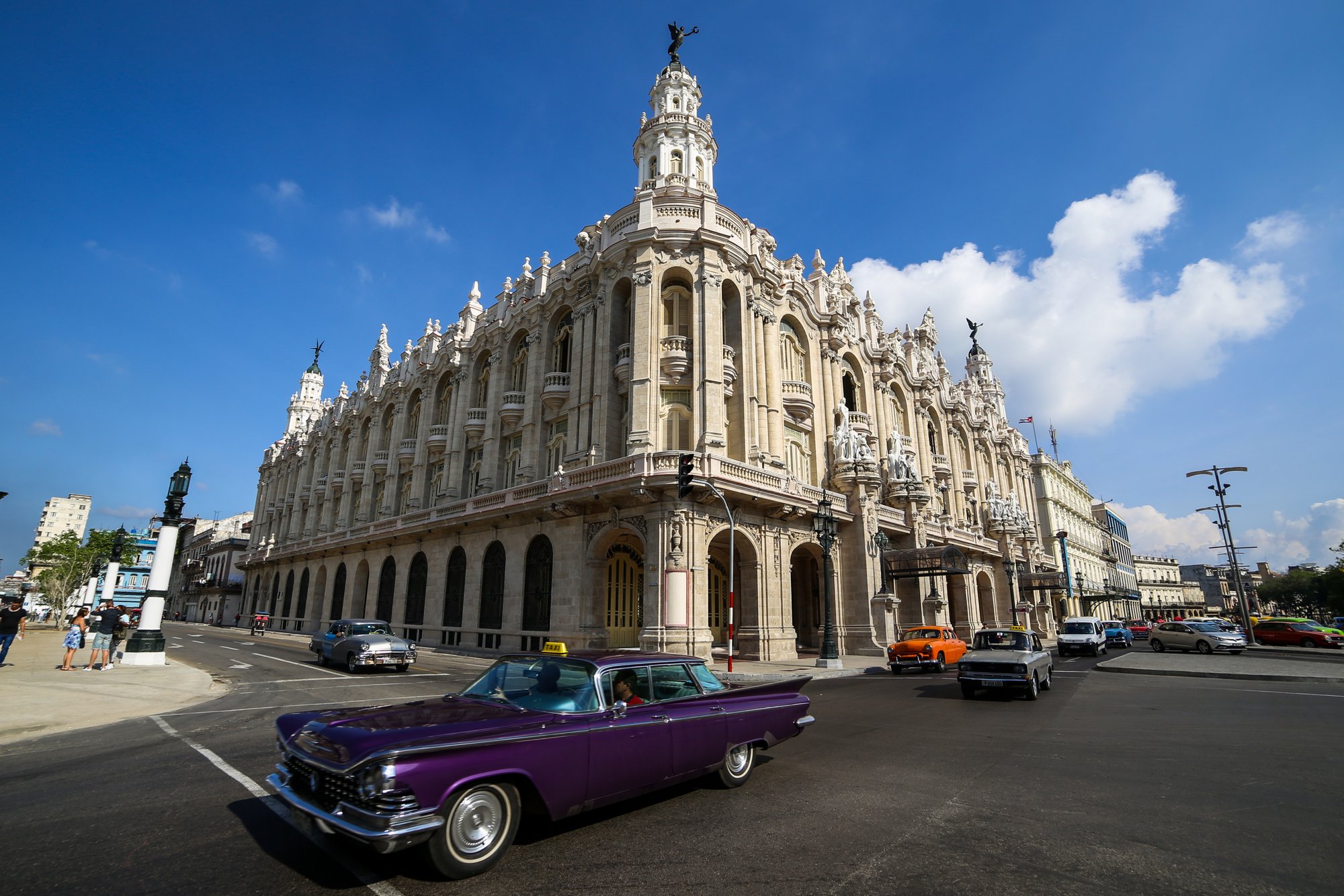
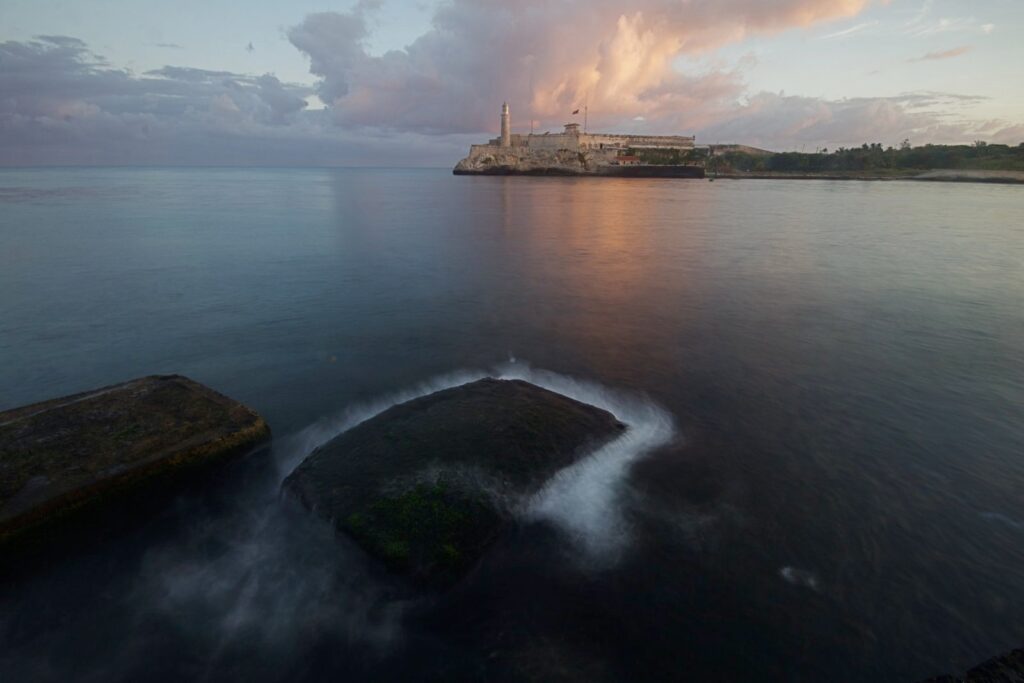
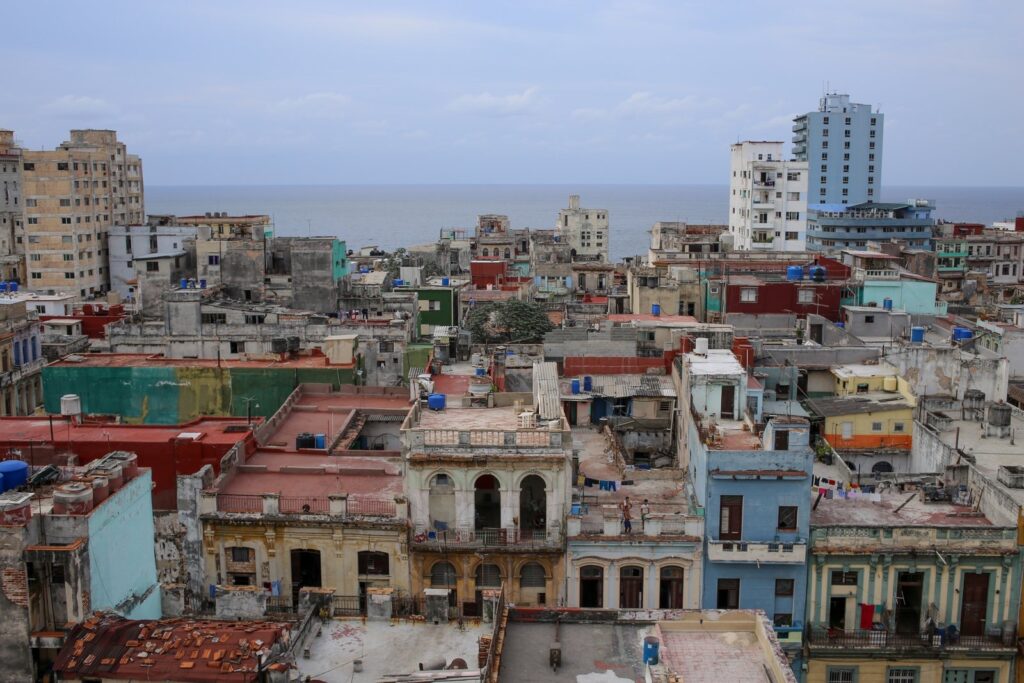
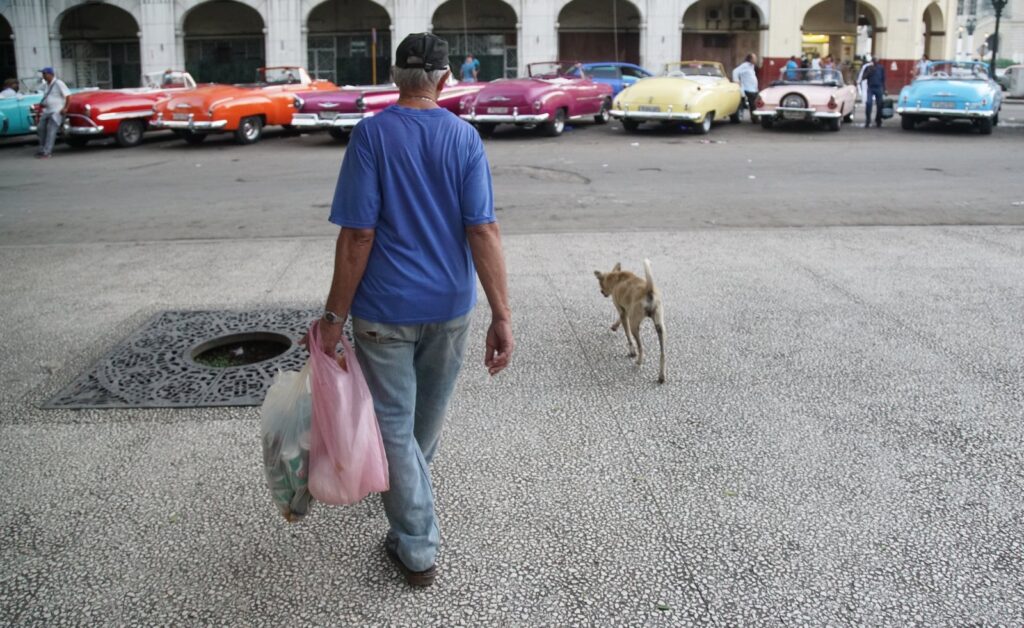
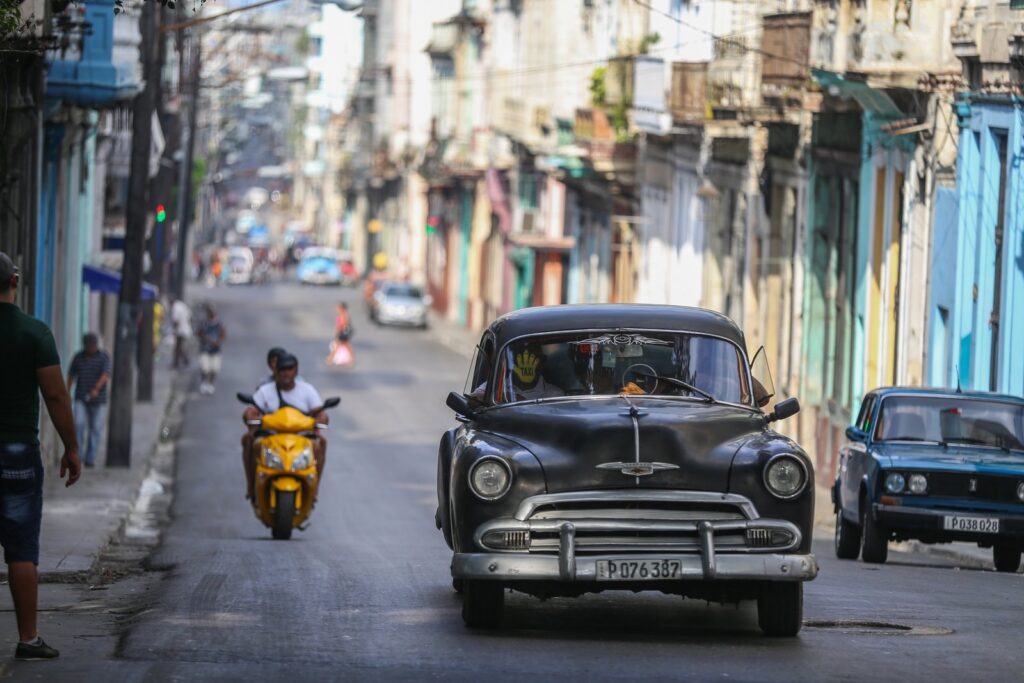
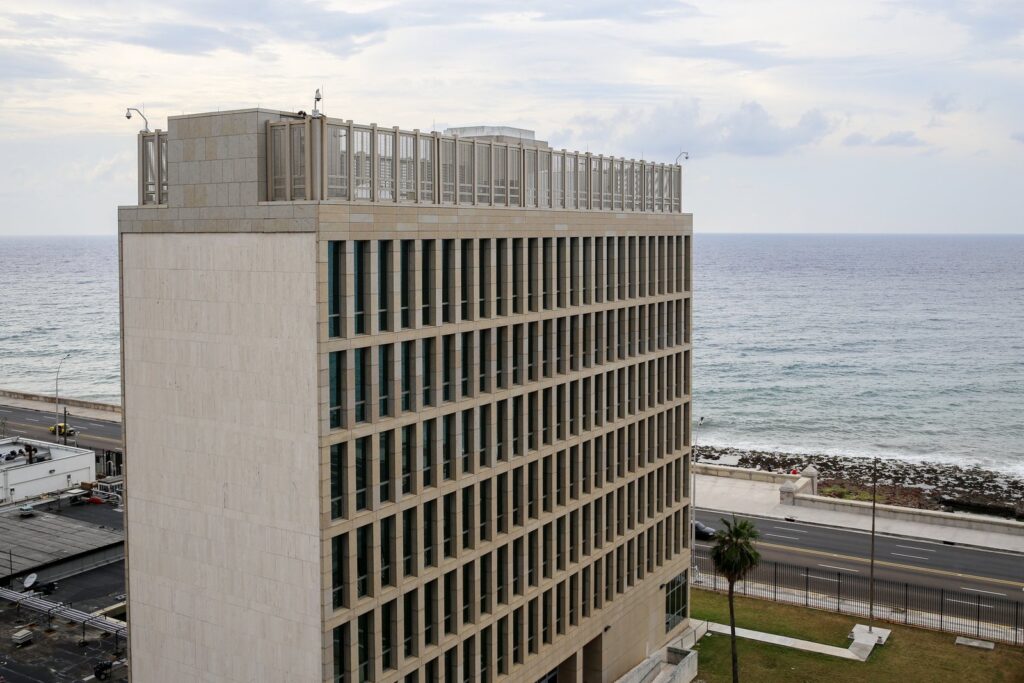
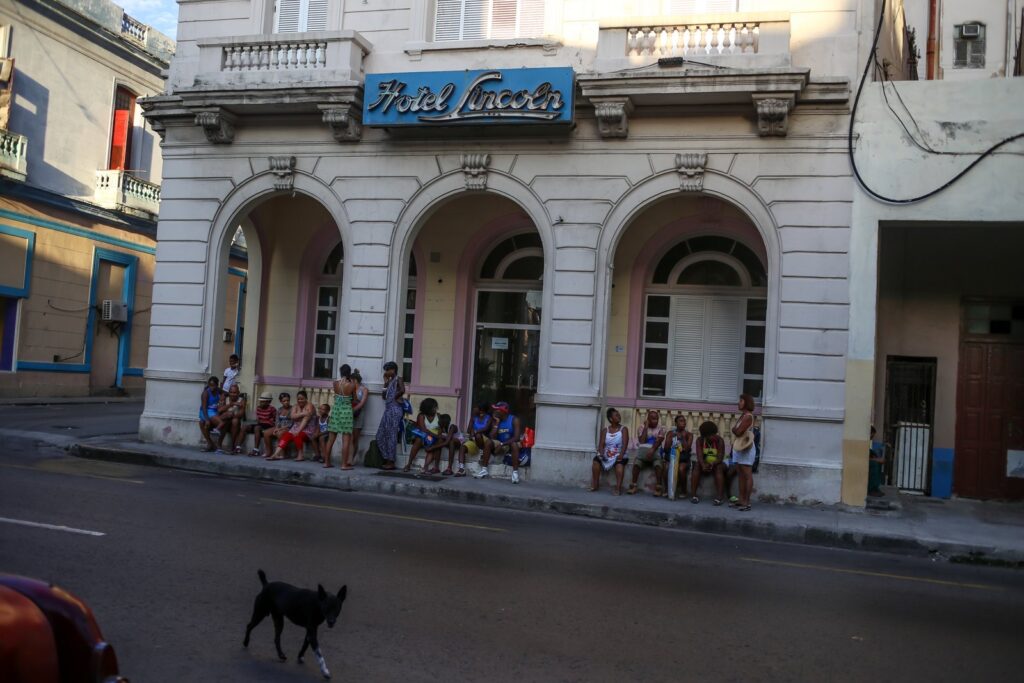
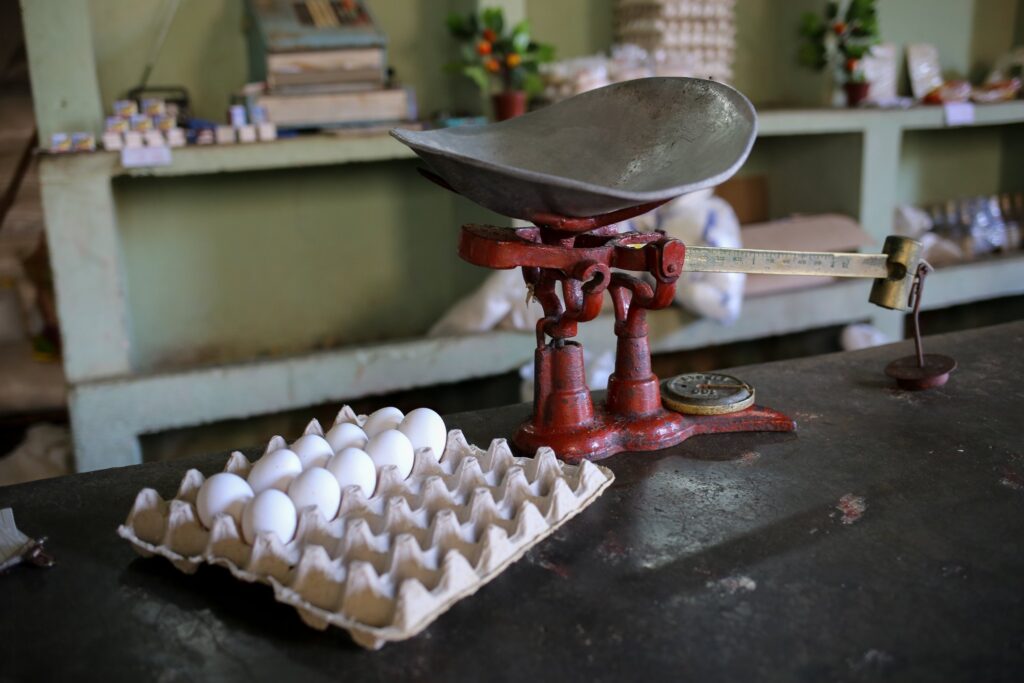
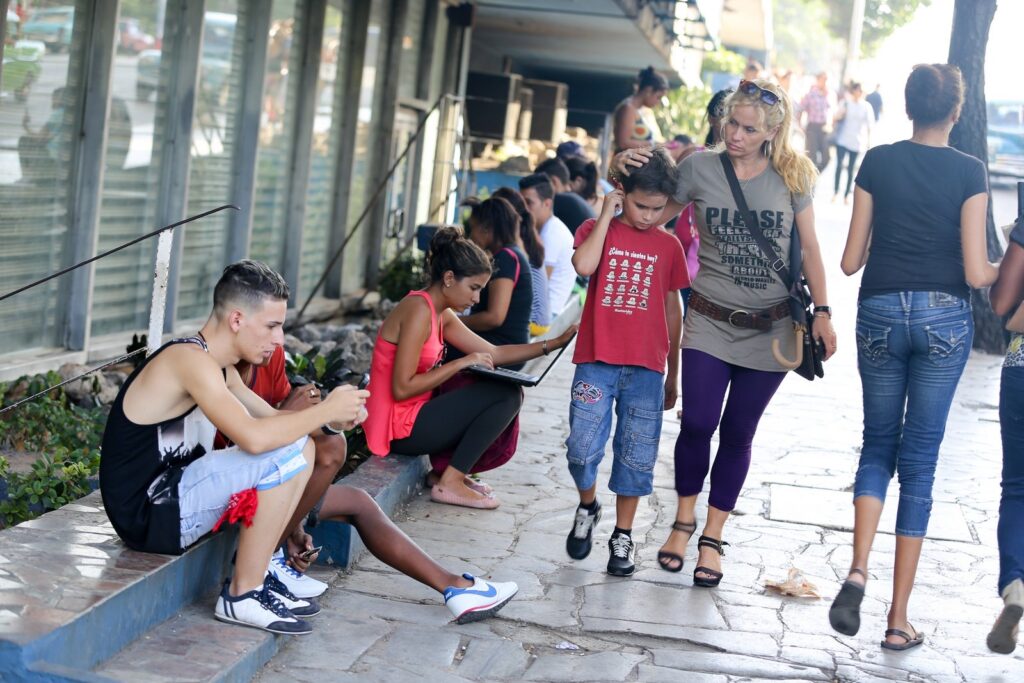
Excelente y profesional entrevista lo felicitamos Tracey Eaton.
Muy buena entrevista lo felicitamos señor Tracey buen trabajo y la intervencion del señor
gracias!
Ilegitimidad del Gobierno Constitucional Cubano de Transición:
https://www.infocubaleaks.com/post/ilegitimidad-del-gobierno-constitucional-cubano-de-transici%C3%B3n